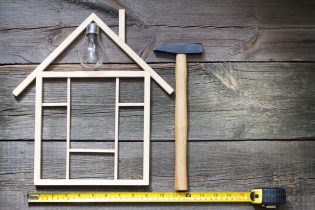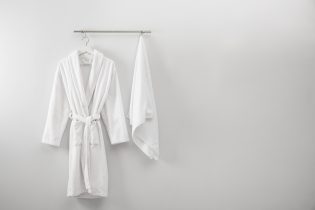The Smart Shower Is Here to Raise Your High Tech Hygiene IQ
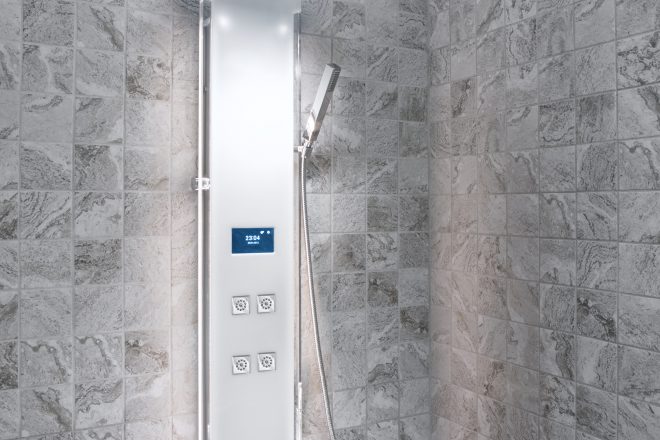
The smart shower is quickly becoming a popular luxury bathroom addition for those wanting a spa-like experience in their own home. These high-tech home additions come with a variety of features and capabilities that allow you to customize your shower to your liking in more ways than you probably knew you needed. In this blog post we’ll discuss the pros and cons of this technology as well as explore the different types of smart showers and the best brands out there.
Pros and Cons of Smart Showers
While smart showers offer a variety of benefits and features, there are also some potential drawbacks to consider. Here are a few pros and cons to keep in mind.
Pros
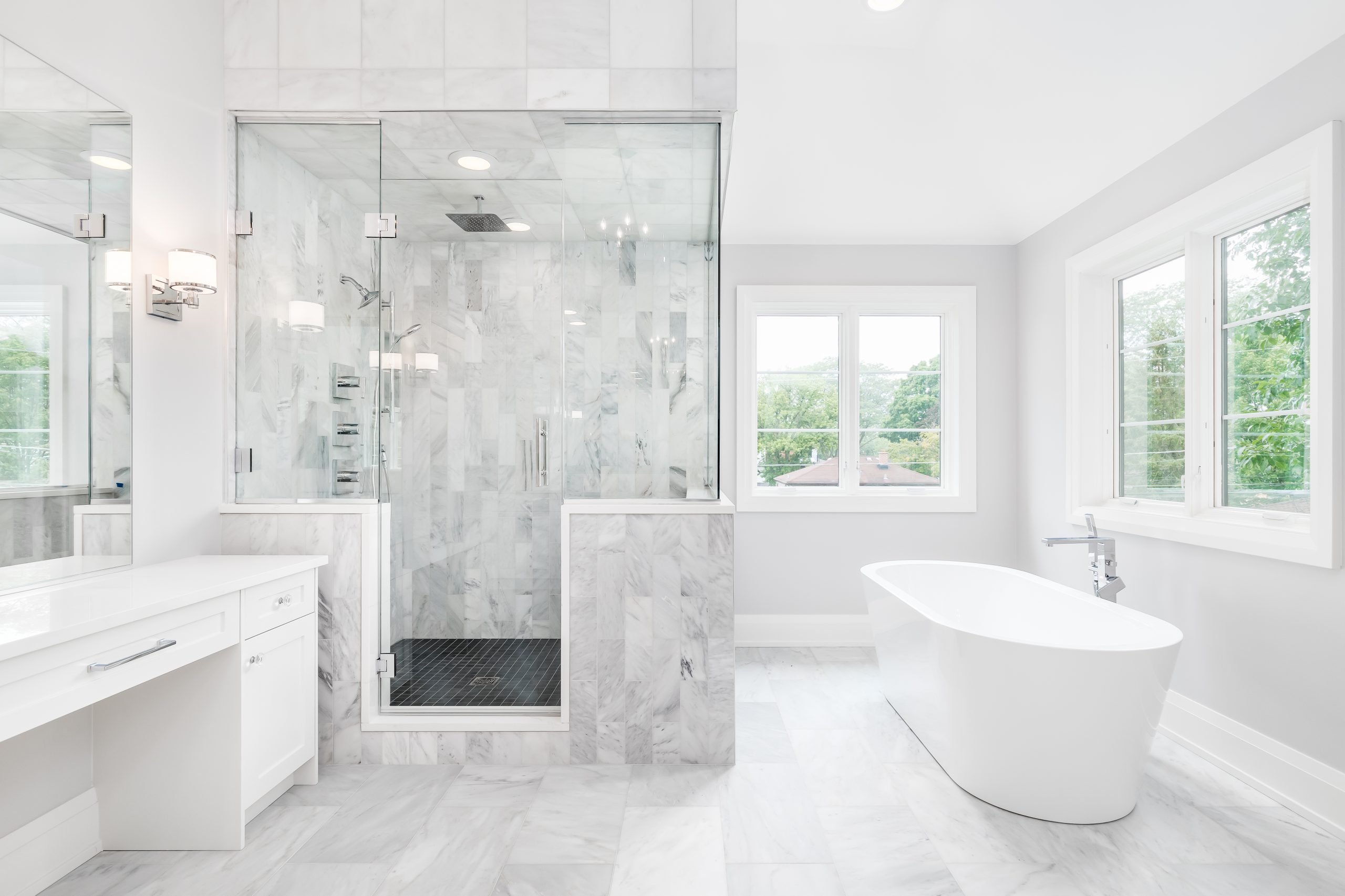
Customization
Smart showers allow you to customize your shower experience in ways that traditional showers cannot.
Here are some specific examples of customizable features that are commonly included in smart shower systems:
- Temperature control: Smart shower systems allow users specific water temperature adjustments. Some systems even have a “memory” feature that remembers the user’s preferred temperature settings and automatically adjusts the water temperature to those settings.
- Voice-activated controls: Some smart shower systems can be controlled using voice commands, which can make it easier to adjust the water temperature and pressure without having to physically interact with the controls.
- Custom shower programs: Many smart shower systems allow users to create custom shower programs that can be activated with a single button press or voice command. For example, users could create a program that includes their preferred water temperature, pressure, and spray pattern.
- Lighting: Some smart shower systems include customizable lighting options that can be used to create a more relaxing and spa-like environment.
- Music: Some high-end systems come equipped with built-in speakers that allow users to stream music from their smartphone or other device.
- Multiple shower heads and spray patterns: Multiple shower heads or body sprays that can be adjusted to different angles and spray patterns, providing a more customized shower experience.
Convenience
With voice-activated or app-controlled showers, you can start your shower from anywhere in your home. This can be especially convenient if you have a large home or if you want to start your shower before you even get out of bed.
Energy Efficiency
Smart showers can be more energy-efficient than traditional showers, as they allow you to set specific water temperatures and pressure levels. This can help you save water and energy in the long run. For example, some smart shower systems have a “pause” feature that allows users to temporarily stop the flow of water while they soap up, which can help reduce water usage and save money on utility bills.
Cons
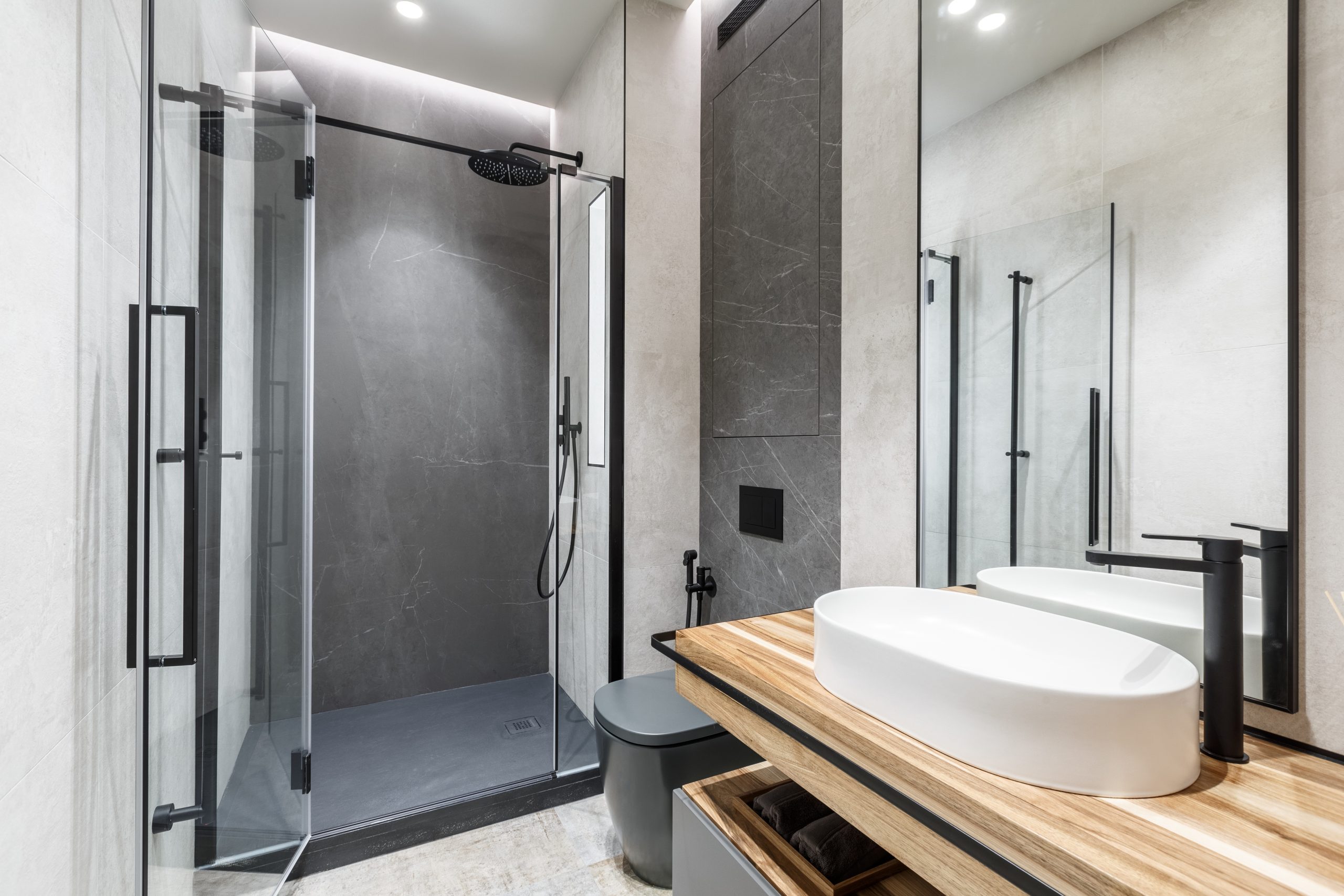
Cost
Smart showers can be more expensive than traditional showers, with some systems starting at several thousand dollars. This can be a significant investment for homeowners on a budget.
The prices of smart shower systems and traditional shower systems can vary greatly depending on the brand, features, and installation requirements. However, in general, smart shower systems are almost always significantly more expensive than traditional shower systems.
For example, a basic traditional shower system with a showerhead, handle, and valve can cost anywhere from $100 to $500. On the other hand, a basic smart shower system with voice-activated controls, temperature control, and programmable settings can cost upwards of $500 to $1,000.
More high-end smart shower systems with additional features like music and lighting can cost even more, ranging from $1,000 to $3,000 or more. In contrast, more high-end traditional shower systems with multiple shower heads or body sprays may still be cheaper than their smart counterparts, ranging from $500 to $1,500.
It’s also important to note that the installation costs for smart shower systems can be higher than traditional shower systems, as they often require additional electrical or plumbing work. This can add several hundred dollars or more to the total cost.
Overall, while smart shower systems may offer more features and convenience, they also come at a higher price point. Traditional shower systems may be more affordable and straightforward, but may not offer the same level of customization or efficiency. When considering which system to choose, it’s important to factor in both the upfront and long-term costs, as well as your personal preferences and needs.
Complexity
Smart shower systems are typically more complex than traditional shower systems due to the added technology and features. This can be overwhelming for some users, especially those who are not tech-savvy. What’s more, these systems often require additional wiring and plumbing to support voice-activated controls, temperature sensors, and other smart features.
For example, some smart shower systems may require a digital valve controller, a temperature sensor, and a Wi-Fi hub to connect to your home network. These additional components can add to the complexity of the installation process and may require professional installation.
Traditional showers are usually compatible with most plumbing and electrical systems, which makes them easy to install and replace and are generally simpler and easier to use. These systems typically consist of a showerhead, handle, and valve, and can be operated using physical controls. They do not require any additional components or wiring, which makes them easier to install and maintain.
Maintenance
A Smart shower may require more maintenance than a traditional shower, as it has more complex components and systems. This can be a hassle for homeowners who prefer low-maintenance fixtures.
Traditional shower systems have fewer components that can break or malfunction, which makes them more reliable and easier to repair. In contrast, smart shower systems’ more complex components may require specialized expertise to troubleshoot and fix any issues that arise, which in addition to inconvenience can also mean a hefty price tag.
Smart Shower Types
For those who are unswayed by the cons and who are ready to upgrade immediately, there are several different types of smart showers available on the market today. Each type offers its own unique set of features and benefits. Here are a few examples:
Voice-Activated Smart Shower
Voice-activated showers allow you to control your shower using voice commands. These showers are usually paired with a smart speaker like Amazon Alexa or Google Home, and can be controlled using voice commands like “turn on the shower” or “set the water temperature to 102 degrees.”
Brizo Litze Smart Shower System – $2,492
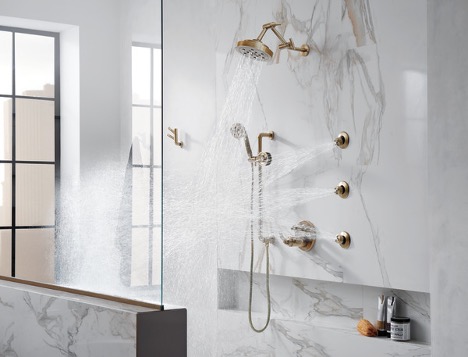
The priciest on our list, the Brizo Litze system is a voice-activated smart shower system that allows you to control water temperature and pressure using Amazon Alexa or Google Assistant. The system also features a sleek, contemporary design that can complement a variety of bathroom styles.
Kohler DTV+ Voice-Activated Shower System – $2,270
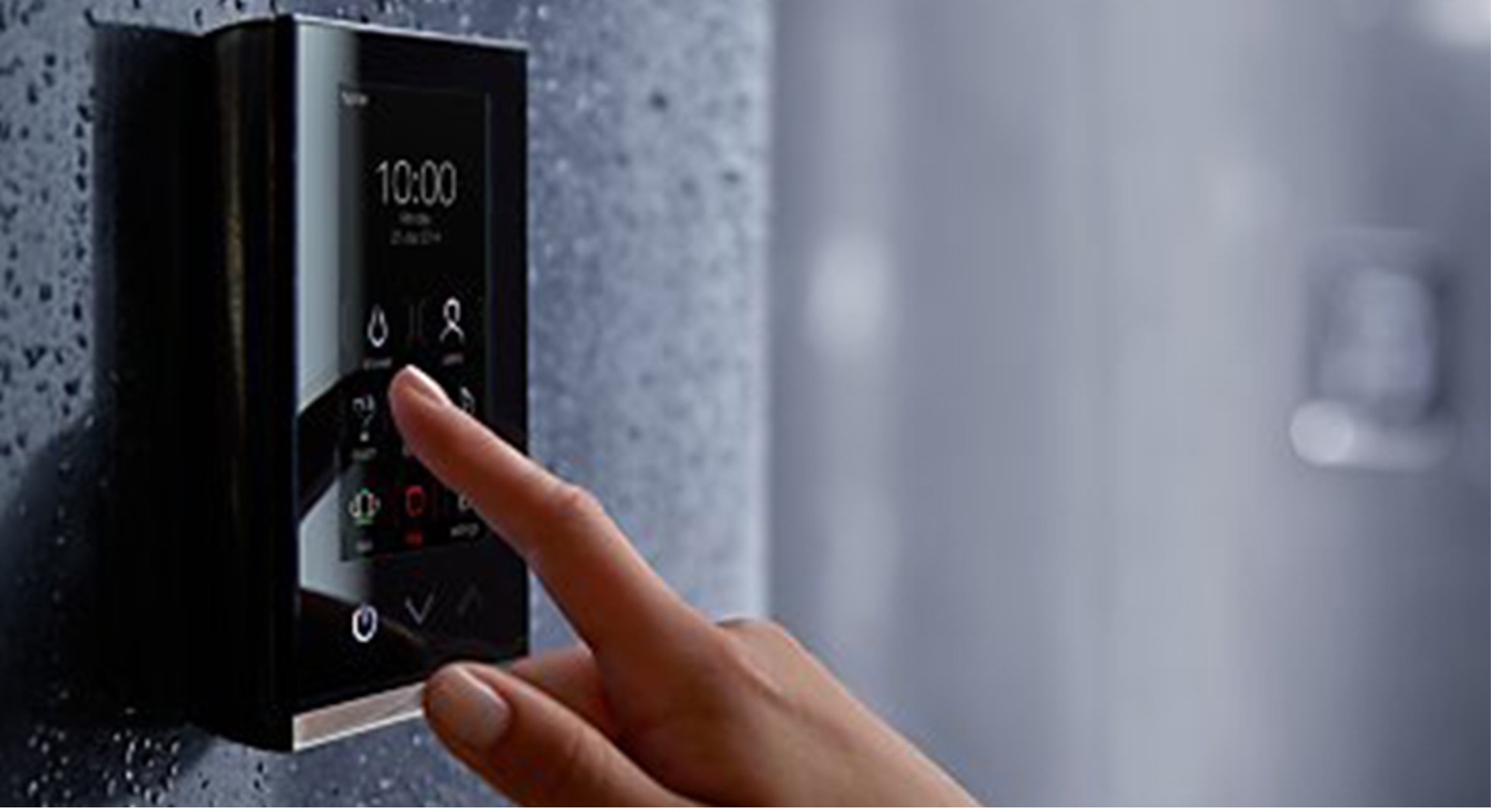
The Kohler DTV+ system is a highly customizable voice-activated system. The system can be controlled using voice commands, as well as a touchscreen controller. It allows you to customize water temperature, pressure, and flow, as well as add features like music and lighting.
Touchscreen Smart Shower
Hansgrohe RainSelect Shower System – $2,025
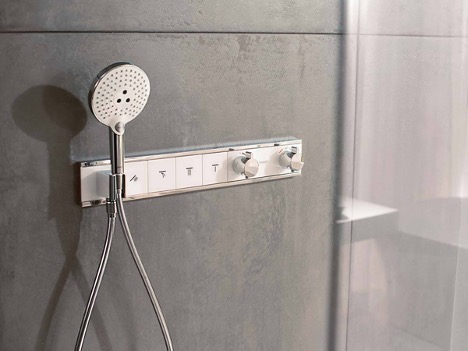
On the higher end, the Hansgrohe RainSelect system is a touch-activated smart shower system that allows you to customize water temperature and pressure using a simple, intuitive control panel. The system also features a variety of showerhead and hand shower options, so you can customize your shower experience even further.
U by Moen System – $1,250
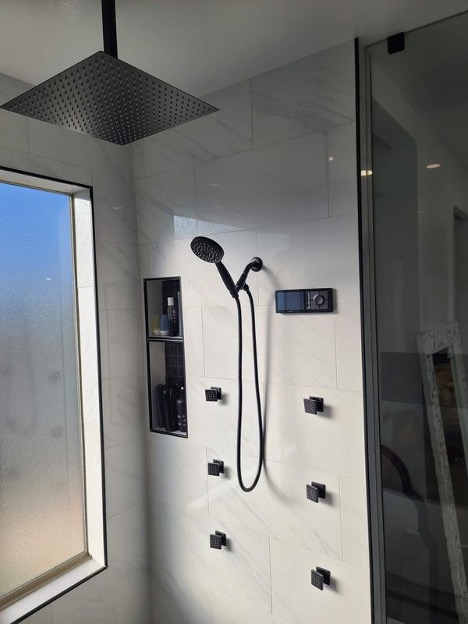
One popular brand for touchscreen showers is Moen. Their U by Moen system features a touchscreen controller that allows you to create and save up to 12 different shower presets.
GROHE SmartControl Shower System – $1,062

On the more affordable (though still pricey) end, the GROHE SmartControl system is a touch-activated smart shower system that allows you to customize water temperature and pressure using a simple push-and-turn control. The system also features a sleek, modern design that can complement a variety of bathroom styles.
App-Controlled Showers
App-controlled showers allow you to control your shower using a smartphone app.
Signature Hardware Digital Thermostatic Shower System – $1,279
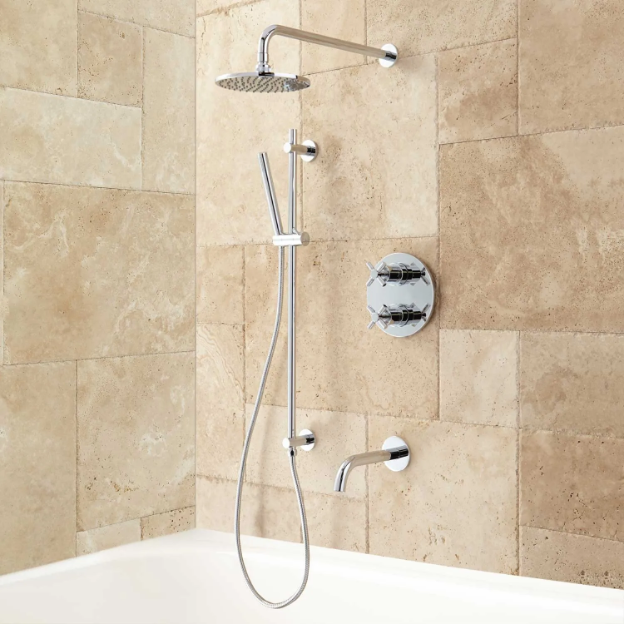
The Signature Hardware system is an app-controlled smart shower system that allows you to customize water temperature and pressure using the Signature Hardware app. The system also features a sleek, modern design with a variety of shower head options.
Delta Temp2O Technology Shower System – $772
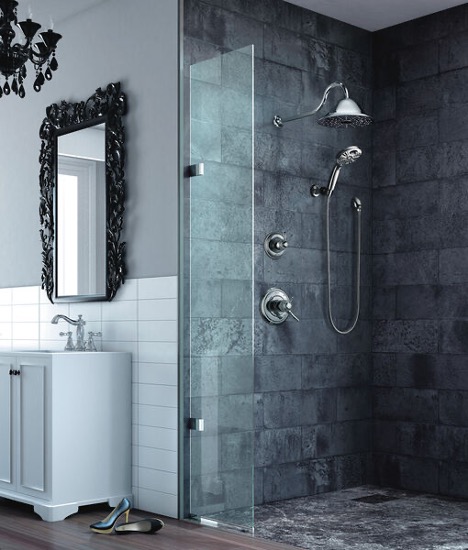
The Delta Temp2O system is an app-controlled smart shower system that allows you to customize water temperature and pressure using the Delta app. The system also features a physical controller with LED indicators to show the water temperature.
Conclusion
Smart showers offer a wide range of features and benefits, from voice-activated controls to customizable presets. Brands like Kohler, Moen, and Delta offer a variety of options at different price points. However, it’s important to consider the potential drawbacks of these high-tech showers, including cost, complexity, and maintenance requirements.
- Categories:


